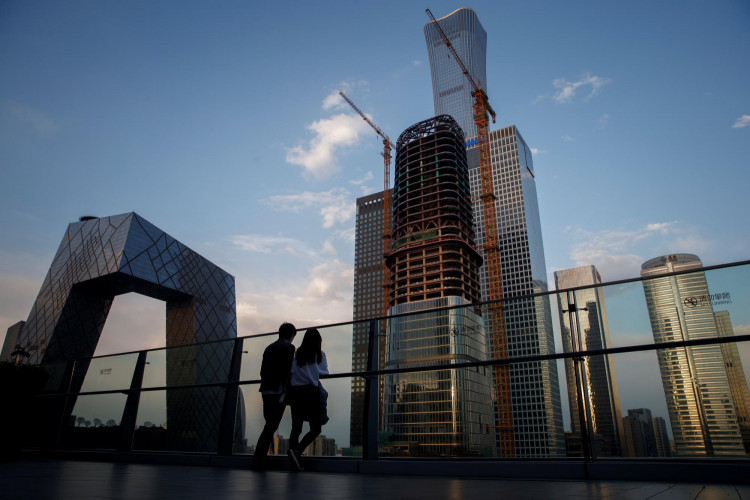China will surpass the U.S. to become the biggest economy in the world by 2028 - five years earlier than projected because of the varying recoveries of the two countries from the world health crisis, a research group says.
In its world economic league table, the Centre for Economics and Business Research calculated China might become a strong-income economy seven years from now.
With the U.S. seen to contract by 5% in 2020, China will close the gap with its biggest competitor, the center said. Overall, the world's gross domestic product is estimated to drop by 4.5% this year, in the largest single-year decline since World War II.
China looked set for average economic growth of 5.7% a year from 2021-25 before slowing to 4.5% a year from 2026-30.
While the U.S. was likely to have a strong post-pandemic rebound in 2021, its growth would slow to 1.9% a year between 2022 and 2024, and then to 1.6% after that.
Japan would remain the world's third-biggest economy, in dollar terms, until the early 2030s when it would be overtaken by India, pushing Germany down from fourth to fifth.
The UK, currently the fifth-biggest economy by the center's measure, would slip to sixth place from 2024.
In the center's fourth quarter survey of chief financial officers they gave an average "modestly improving" outlook for China's gross domestic product - lifting the world's second-biggest economy from its third quarter grade of "stable."
As a result of the effects of the coronavirus many nations are expected to suffer negative growth for the current year. "But while COVID-19 cases have spread to almost every country around the world, not all of them have been affected to the same degree," research by the Japan Center for Economic Research shows.
China's "skillful" handling of the pandemic, with its rigid early lockdown and hits to long-term growth in the West, indicates the mainland's relative economic performance had improved, according to CEBR. China looked poised to register an average economic growth of 5.8% a year starting 2021-25 before easing to 4.6% per year from 2026-30, it said.
In November, China's President Xi Jinping said there was a possibility its economy would double in size by 2035. The country's latest five-year plan aims for it to attain a "modern socialism" in the next decade and a half.
Center deputy chairperson Douglas McWilliams said the main news was the acceleration of growth of China's economy. "We expect it to become an upper-income economy during the current five-year timetable," The Guardian quoted him as saying.
Meanwhile, China, Taiwan and Vietnam only are on course to keep their positive year-over-year growth rates before 2021. India's rate may likely be negative by more than 10%, while the Philippines is seen to witness a narrowing of over almost 9%. Singapore, Canada, Hong Kong, Thailand and Malaysia face gross domestic product contractions of more than 6%.





